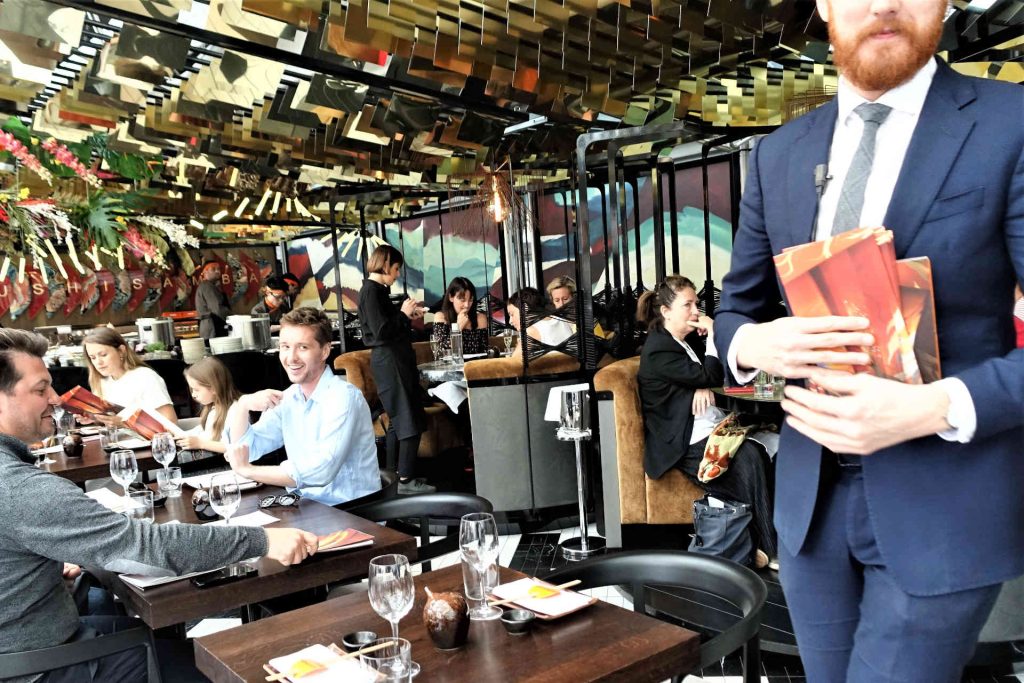Individual gastronomy has a great opportunity to position itself as a unique and distinctive alternative in the hospitality industry. Individuality is its greatest USP: establishments that stand out through their uniqueness offer guests a personalized and interactive experience that can also be controlled through the use of technologies such as smartphones, without replacing personal hospitality.
Especially at a time when revenue kills hospitality is becoming a global challenge, emotional, analog hospitality remains the decisive factor. Revenue is important, but successful restaurateurs are good hosts and can still do the math.
The interplay of efficient digitalization for internal processes and authentic, human interaction with guests is the key. Genuine emotions, authentic storytelling and analog experiences through F&B, service, design and atmosphere create lasting impressions. Gastronomy needs and brings experience and emotion. This also includes the pleasure experience. Individual gastronomy stands for good food: home-cooked dishes made from high-quality products, as natural as possible and from regional producers, plus vintner wines, home-made juices, high-quality teas and coffee specialties.
New concepts such as multi-use spaces (combination of café, co-working, bar and event location) or experience gastronomy with interactive elements, live shows and storytelling menus (e.g. theater gastronomy) offer innovative ways to appeal to guests. Examples such as the Social Kitchen in Vienna with cooking courses combined with shared dinners and networking or the Chamäleon Theater in Berlin (live performances with a 4-course menu) show how creative formats can be successfully implemented.
The pandemic has triggered a shakeout in the industry. What remains are often economically stronger and more professional providers who work more efficiently with well thought-out concepts and digital support. At the same time, higher wages are required for fewer employees, which increases the focus on excellent analog service and individually tailored offers. A clear profile, smaller but well thought-out menus, personalized offers in the form of menu options or a boutique character highlight individual gastronomy. Digitalization optimizes processes, but emotional, analogue hospitality remains crucial – the dining out experience is and will remain indispensable.

There is a tension between digital progress and emotional hospitality that is redefining the restaurant industry. AI, automation, and data-based processes are changing not only workflows, but also attitudes, communication, and expectations. What was once considered a gimmick is now becoming a strategic necessity. And perhaps the most important question of our time: How can humans remain relevant in a world that is becoming increasingly digital?
Pizza is one of those dishes that everyone has an opinion about. Almost everyone thinks they understand it—and yet a surprising number of people fail at this culinary “common property”. In Vienna and beyond, Neapolitan pizzerias are now springing up everywhere, some excellent, others whose interest in good pizza comes to an abrupt end. As we all know, quantity does not equal quality. Or, to quote Martin Albrich from the First Vienna Pizza Association: Pizza is bread. And bread forgives nothing.


Individual gastronomy has a great opportunity to position itself as a unique and distinctive alternative in the hospitality industry. Individuality is its greatest USP: establishments that stand out through their uniqueness offer guests a personalized and interactive experience that can also be controlled through the use of technologies such as smartphones, without replacing personal hospitality.
Especially at a time when revenue kills hospitality is becoming a global challenge, emotional, analog hospitality remains the decisive factor. Revenue is important, but successful restaurateurs are good hosts and can still do the math.